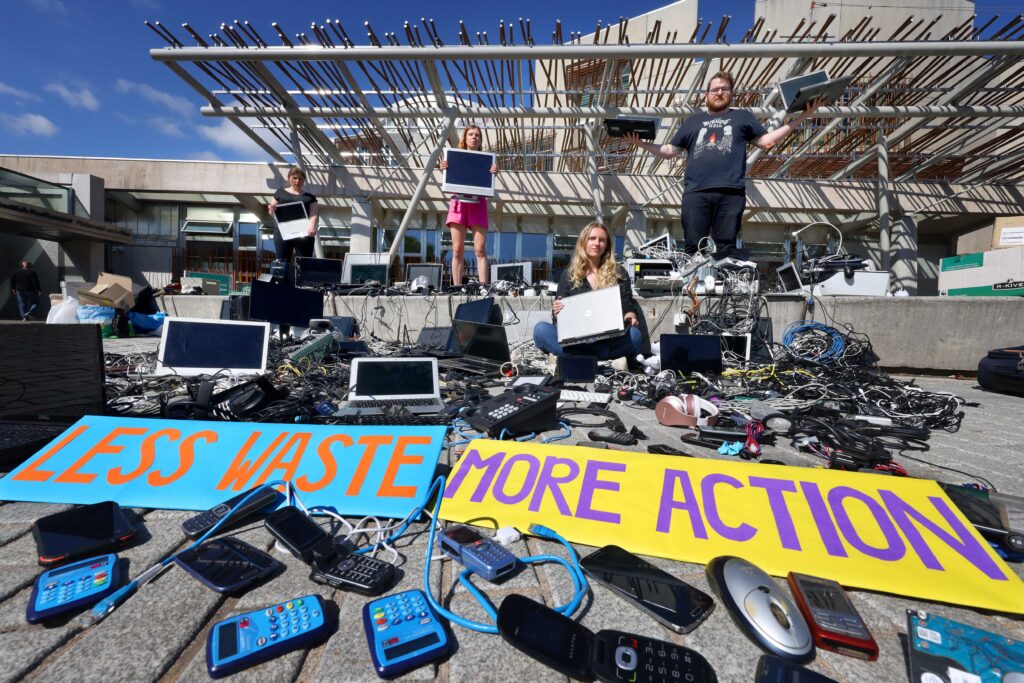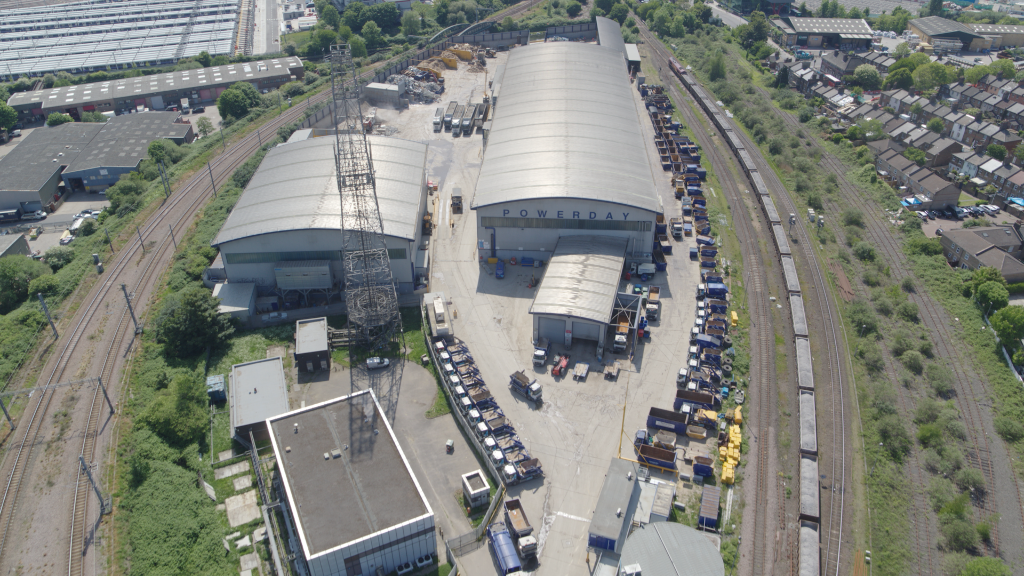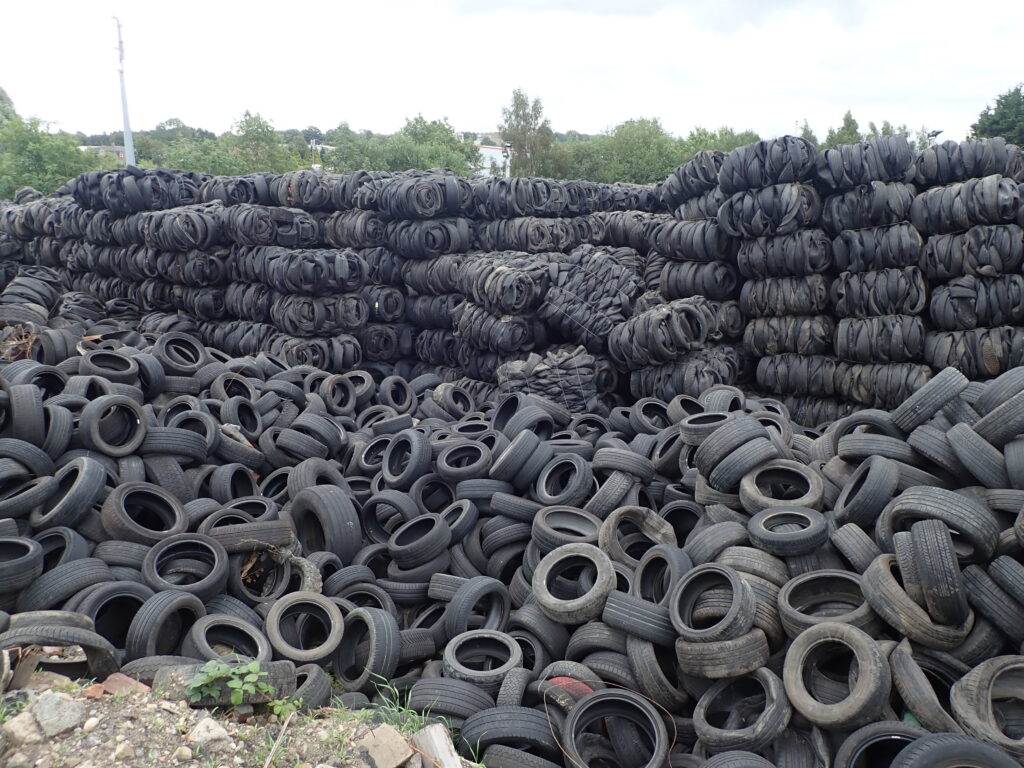As part of its campaign, activists from the charity piled electrical waste outside the Scottish Parliament ahead of the debate.
The not-for-profit stated that the drafted bill proposes that the country electrify all its vehicles but fails to consider where the materials needed will come from.
Devices such as mobile phones and laptops rely on lithium, cobalt and copper for their power. However, Friends of the Earth has claimed that due to “inadequate” waste management systems, these materials are often discarded instead of being reused or recycled. It stated that less than 1% of lithium is recycled.
According to the charity, much of this material comes from mines in the Global South, in countries such as Chile, the Philippines and the Democratic Republic of Congo. Friends of the Earth claimed these countries “exploit local communities, create pollution and increase carbon emissions”.
Disposable
Kim Pratt, circular economy campaigner at Friends of the Earth Scotland, said: “The scale of electronic waste in this country is shocking. All of the waste that we’ve gathered today came from simply asking around – most of us have something sitting in a cupboard because we don’t know what to do with it.
“Electrical waste contains precious material which is lost when these items are thrown away. Scotland can’t afford to keep treating electrical products, and the precious materials they contain, as disposable.
“Reducing our consumption of the materials used to create these products, by increasing reuse and repair, is essential to reduce the harm being done to people and the environment. The new circular economy law also needs to include a plan for these minerals, which are required for our transition away from fossil fuels. If the law does this, it has the potential to have a big impact in creating a fairer and more sustainable future.”










Subscribe for free